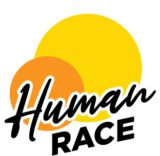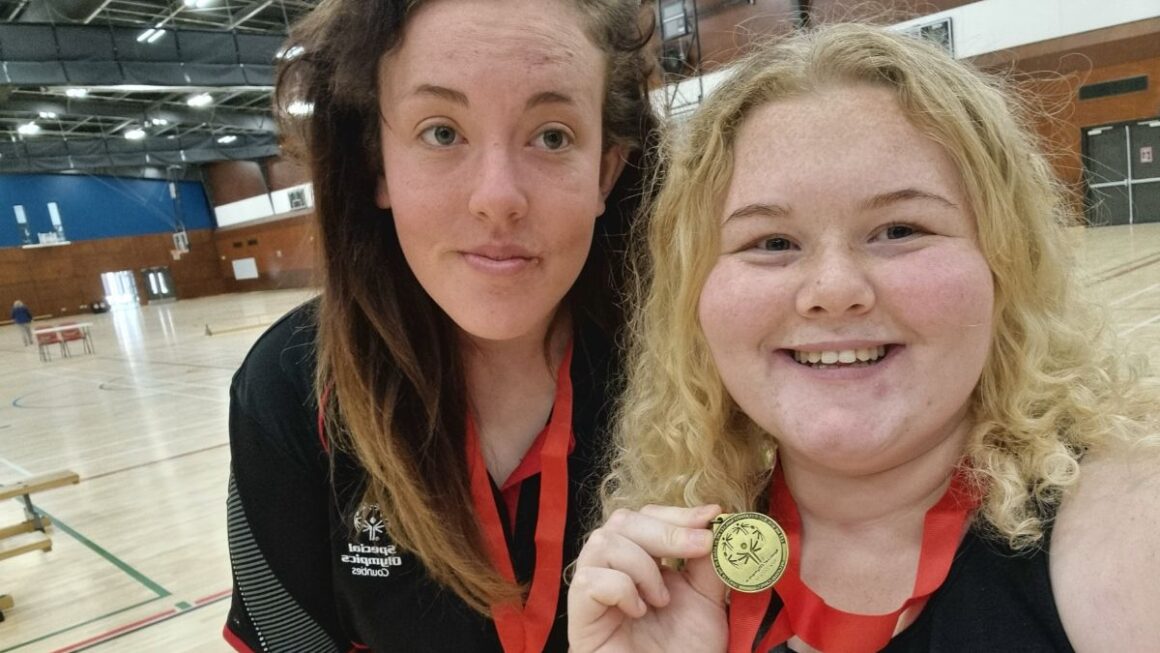“Some people may take longer than others to do things, and that’s okay.”
– Grace Payne
Meet Grace Payne, a Special Olympics New Zealand athlete leader with autism who competes in basketball, football, and powerlifting. She has been a passionate advocate for creating inclusive environments that allow people with intellectual disabilities to thrive and lead their best lives. Want to know how to be a better ally and create a more inclusive world? Grace shares some answers as she gives us a glimpse into her typical day.
Question: What is a typical day like for you?
Answer: I wake up, have breakfast, which is usually oats and protein because it tastes great and is good for my health. I follow a diet plan given to me by my coach. I love taking time out to do some activities that make me happy, like painting my nails or making tie-dye shirts, I also love to do makeup from time to time!
Question: What was school like for you?
Answer: I quite liked school. I know a lot of people didn’t, but it was different for me. I have attended mainstream schools as well as schools for children with special needs. My favorite subjects were music and physical education. I also loved the Individual Evaluation Program, where each student has individual goals that he or she aims to achieve. Speaking of least favorite subjects, honestly, I don’t think I had any!
Question: How are mainstream schools different from schools for students with special needs?
Answer: One of the primary differences in schools for students with special needs was that they make learning as visual as possible. The timetables, mode of teaching, stories- all of it is visual.
Question: What were some challenges you faced at school?
Answer: Although fitting into school wasn’t a big obstacle for me, I did face a few challenges. Finger-pointing children, questioning “what’s wrong with you?”, “Are you pregnant?” it’s just hurtful. I wish people would stop doing that. As someone who faced bullying during childhood, I think the best advice I have for people who might be going through something similar in their life is- please talk about it. I didn’t, but I should have. Talk to people you trust. They can be your friends, family, teachers, anyone you feel comfortable with!
Question: What did you pursue in higher education and what did you like most about your education?
Answer: I’ve studied Early Childhood Education to fulfill my dream of becoming a teacher for children with and without intellectual disabilities. During my education in Early Childhood studies, I grew particularly fond of the subject ‘Cultural Partnerships’, where the cultures, ethnicities, and religions of students across the world are taught to aspiring teachers. I believe it’s an important subject because, in my opinion, everybody needs to learn a little bit about different cultures, to make the world more inclusive. I met people from across the globe, I made friends. It’s been amazing!
Question: What are common misconceptions about people with intellectual disabilities?
Answer: People often tend to believe that those with intellectual disabilities can’t be independent and rely on others to live their lives. A lot of us can live independently, like everyone else. We can work, we can go to school, we can carry out tasks. Some people may take longer than others to do things, and that’s okay. We all adapt differently.
Question: What do you wish people knew about autism?
Answer: The first thing is, people are born with autism. They do not develop it. It’s a neurological disease. The second thing is- all people with autism are different. One person might not have the same symptoms as another. People think of autism as a spectrum, somewhat linear in nature. I like to see it as more of a wheel with different colors, where each color represents a different facet, like communicative abilities, sensory needs etc. While I might be able to communicate properly, I can have trouble driving. Likewise, someone else might be able to drive with ease, but have difficulty in communication.
Question: How do you build awareness about people with intellectual disabilities?
Answer: I like social media. I use it as a medium for raising awareness. One thing we all can and must do is help our families and friends understand intellectual disability better. The cycle doesn’t stop with one person. You educate your friends; they educate theirs and so on. Another thing I do is visit schools or organizations and talk about intellectual disability. I think it’s imperative to educate children, so that they grow up to ask the right questions. People can be curious, but they tend to overlook the need to word their questions properly. Instead of saying “what’s wrong with you”, the question should be “what’s your disability?”
Question: What have you been working on lately?
Answer: I’m currently working on a transportation app like Uber with Jack Green, a Youth Leader. The app, named ‘SOGO’ is built for the Special Olympics community of people with intellectual disabilities. The idea is to have volunteer drivers pick up athletes and drop them to trainings, to make sure nobody feels excluded. I think if we take away their feelings of isolation and exclusion, we can improve their mental health!
Grace’s hope is to see this world become a more inclusive place for people like her. Her advice to all of us? “Life doesn’t come with a manual; I didn’t get one. Keep being yourself, don’t change for anyone! Whatever you’re going through, you’ll get through it. I promise you!”

